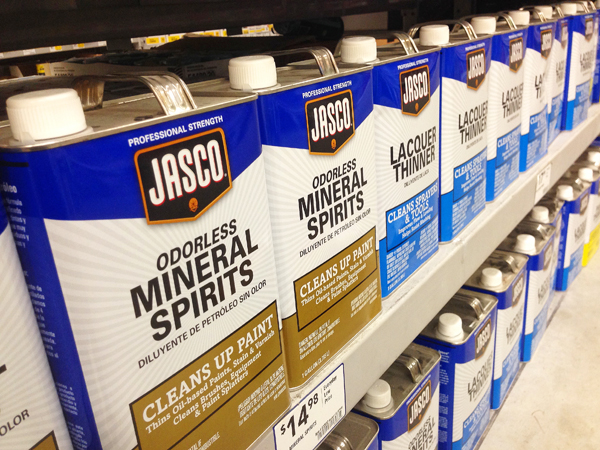
This is a question that has probably vexed many of us. Mineral spirits is often used in the world of woodworking. Many woodworkers wondered how to dispose of used mineral spirits when you’re done with them.
The first suggestion offered — and endorsed by several other contributors — was to recycle. Put the used stuff in jars and let the sludge settle to the bottom (takes a few months). Once the jar is clear, decant the good stuff into a clean jar, filtering with discarded pantyhose or coffee filters. The poster’s suggestion of just tossing the sludge into the garbage, however, was disputed. To avoid creating a potentially hazardous waste situation, one writer advised letting the sludge evaporate before disposing of it. Forum moderator Michael Dresdner concurred, suggesting that the sludge be spread out on newspapers to speed evaporation. Without drying out, he noted, the sludge could contaminate groundwater by seeping out of landfills. He also noted, that once they’re filtered, mineral spirits return to their original state and will never “go bad”.
A woodworker then voiced his dissenting opinion that allowing the sludge to evaporate was also polluting (admittedly on a very small scale). He suggested storing the stuff until it filled the jar, then taking it — along with old household chemicals, poisons, used oil, old gasoline, fluorescent light bulbs, oil based paints, and car batteries — to the local hazardous waste disposal depot. According to another poster, this process would probably be free for an individual household, but would cost a fee for a small business.
The discussion wound down with a series of posts debating whether mineral spirits were hazardous material. One suggested that only substances containing mercury, lead, and cadmium qualified as officially hazardous. That said, he suggested using common sense in disposing of anything that might impact the environment and checking with your local solid waste department. Another participant declared that it was OK (at least in his neighborhood) to just leave the jar on the curb (marked as to its contents) for the garbage man to pick up. After checking with the EPA, a contributor declared that while mineral spirits are not toxic, they are still hazardous due to flammability and the fact that they sometimes contain benzene, toluene (also called methylbenzene), and xylene & which are all, indeed, toxic. A final poster provided the EPA web page that discusses mineral spirits.
Originally posted on the Badger Pond Power Tool Forum.





